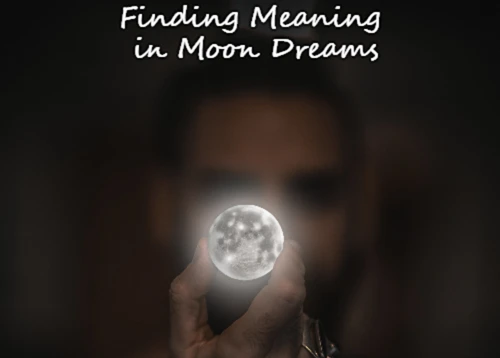Welcome to the Enigmatic World of Dreams: Unveiling the Power of Sun and Moon Symbolism
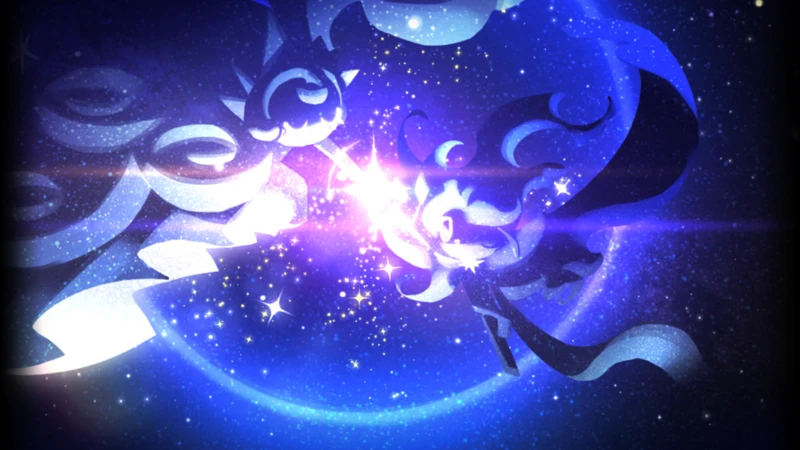
Have you ever been baffled by the vividness and depth of your dreams? Dreams have long captivated human beings, leaving us questioning their meaning and significance. In the realm of dreams, symbolism plays a crucial role in unraveling the mysteries of our unconscious mind. This article delves into the enigmatic world of dreams, exploring the intricate symbolism surrounding the sun and moon. Join us as we embark on a journey to understand how these celestial symbols illuminate our unconscious, shedding light on the hidden aspects of our psyche. Prepare to be mesmerized by the limitless power of the sun and moon symbols in dreams.
Understanding Dreams

Dreams have fascinated humans throughout history, and their significance extends far beyond mere nighttime imaginings. They hold a key to unlocking the depths of our subconscious mind, offering insights into our emotions, desires, fears, and memories. Dreams provide a unique window into the hidden workings of our psyche, allowing us to tap into aspects of ourselves that may be overlooked in our waking lives. By deciphering the symbolic language of dreams, we can uncover valuable messages and gain a deeper understanding of ourselves and our experiences.
The unconscious mind is a vast reservoir of thoughts, feelings, memories, and desires that are not readily accessible to our conscious awareness. It operates beneath the surface of our conscious mind, influencing our thoughts, behaviors, and perceptions in subtle ways. Dreams serve as a bridge between the conscious and unconscious mind, allowing repressed or forgotten elements to rise to the surface. Exploring the symbolism within dreams can help illuminate the hidden aspects of our psyche, offering valuable insights into our motivations, conflicts, and unresolved emotions. Understanding the unconscious mind is crucial in gaining a deeper understanding of our dreams and their significance.
1. The Significance of Dreams
Dreams hold immense significance in our lives. They offer a gateway to our subconscious mind, providing us with valuable insights and messages from our inner selves. Dreams are not mere random thoughts or pictures, but rather a reflection of our deepest emotions, experiences, and desires. They serve as a powerful tool for self-discovery and personal growth. Through dreams, we can explore and confront unresolved issues, fears, and conflicts that we may be unaware of in our waking life. The symbolism within dreams acts as a language through which our unconscious communicates with us, delivering important messages about our lives, relationships, and inner thoughts. By paying attention to the significance of our dreams, we can gain profound insights into ourselves and make positive changes in our waking life.
2. Unconscious Mind Explained
The concept of the unconscious mind, popularized by renowned psychoanalyst Sigmund Freud, revolves around the idea that there is a part of our psyche that operates outside of conscious awareness. The unconscious mind is a reservoir of thoughts, emotions, memories, and instincts that influence our thoughts and behaviors, often without us being aware of it. It is like an iceberg, with only a small portion visible above the water while the majority remains hidden beneath the surface.
Freud believed that the unconscious mind was a storehouse of repressed and forgotten experiences, particularly those of a traumatic or uncomfortable nature. These repressed thoughts and emotions can manifest in dreams, serving as a way for the unconscious mind to communicate its messages to the conscious mind. Freud argued that dreams are symbolic representations of our unconscious desires, fears, and conflicts.
To unlock the messages hidden within the dreams, it is essential to delve into the symbolism present in the dream content. Symbolism acts as a language of the unconscious, conveying messages that may not have a straightforward interpretation. By analyzing the symbols present in our dreams, we can gain valuable insights into our deeper selves and uncover aspects of our psyche that may be influencing our thoughts, emotions, and behaviors.
Sun Symbolism in Dreams
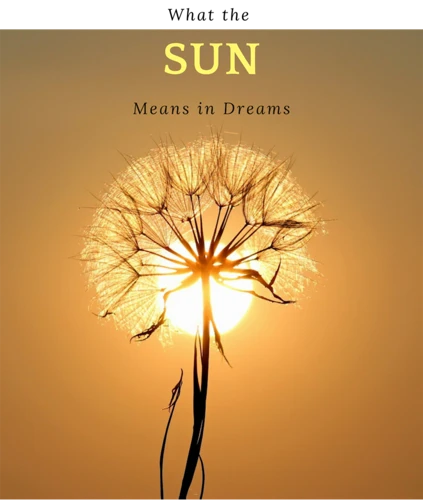
Symbolism plays a profound role in dreams, and the sun is a powerful and recurring symbol that holds significant meaning. In dreams, the sun often represents vitality, energy, and enlightenment. It symbolizes consciousness, awareness, and the essence of life itself. The sun’s brilliance and warmth evoke a sense of power and strength, reflecting the light that shines within our own being. It serves as a guiding light, illuminating the path to self-discovery and personal growth.
When the sun appears in a dream, it may be a reflection of our inner spark, urging us to embrace our true potential and embrace our inner radiance. It can also symbolize clarity and insight, shining a light on unresolved issues or hidden truths in our lives. The sun’s presence in a dream may be a sign of optimism, hope, and new beginnings. It can represent a period of growth, transformation, and renewed energy.
In some cases, the sun may also symbolize the male archetype or masculine energy. It embodies qualities such as strength, assertiveness, and assertiveness. The appearance of the sun in a dream may be a call to embody these traits and embrace our assertive nature.
1. Symbolic Interpretations of the Sun
The sun is a powerful symbol that holds significant meaning in our dreams. Symbolically, it represents vitality, energy, consciousness, and enlightenment. In dreams, the sun often serves as a source of light and warmth, illuminating the path ahead and offering guidance. It is a symbol of clarity, optimism, and positivity, reminding us to embrace our inner strength and radiate our true selves. The sun can also signify a sense of power and authority, symbolizing the masculine energy within us. Its presence in our dreams may indicate a time of personal growth, self-discovery, and a renewed sense of purpose. Additionally, the sun can represent our ego, the conscious self that seeks recognition and validation. Dreams featuring the sun prompt us to reflect on our self-image and how we present ourselves to the world. At times, the sun in dreams may become obscured or undergo a solar eclipse, symbolizing moments of darkness, uncertainty, or the need for self-reflection. These dream scenarios remind us to seek balance, embrace our shadows, and find harmony between our conscious and unconscious selves.
2. The Sun as a Source of Light and Energy
The sun, as a symbol in dreams, holds profound significance as a source of light and energy. In dreams, the sun often represents vitality, growth, and enlightenment. Its radiant energy illuminates the dark corners of our unconscious, bringing clarity and understanding to our thoughts and emotions. Just as the sun provides warmth and sustenance to the Earth, it symbolizes the nourishment and life force within us.
When the sun appears in dreams, it may be a symbol of inner strength and power. It represents the masculine principle, encompassing qualities such as confidence, assertiveness, and leadership. Basking in the sun’s rays in a dream can signify a boost in self-esteem and a renewed sense of purpose.
The sun’s presence in dreams can also indicate a need for self-expression and creativity. Just as the sun radiates light and warmth, it encourages us to share our unique gifts and talents with the world. It awakens our creative potential and inspires us to shine brightly in our endeavors.
In some cases, dreaming of the sun may point to a desire for guidance and clarity in life. It serves as a beacon of hope, reminding us to seek inner wisdom and align our actions with our true purpose. Just as the sun rises each day, symbolizing new beginnings, dreaming of the sun can signify a fresh start or a need for renewal.
The sun’s representation in dreams as a source of light and energy signifies the vitality and potential within us. It encourages us to embrace our inner strength, express ourselves authentically, and seek clarity and guidance on our life’s journey. Embracing the power of the sun symbolism in dreams can lead to a deeper understanding of ourselves and the path we are meant to follow.
3. Solar Eclipse and Its Symbolic Meaning
Solar eclipses, with their captivating celestial display, hold significant symbolic meaning in dreams. A solar eclipse occurs when the moon passes between the sun and the Earth, temporarily obscuring the sun’s light. In dreams, a solar eclipse often represents a period of darkness or uncertainty in one’s life. It symbolizes a moment of transition, where the familiar and predictable aspects of life are eclipsed by the unknown and unpredictable. This can be interpreted as a metaphor for personal growth and transformation, where old patterns and beliefs are challenged and new possibilities emerge. The symbolism of a solar eclipse in dreams encourages us to embrace change and navigate through times of ambiguity with courage and resilience. It reminds us that even in the darkest moments, there is potential for growth and renewal.
Moon Symbolism in Dreams
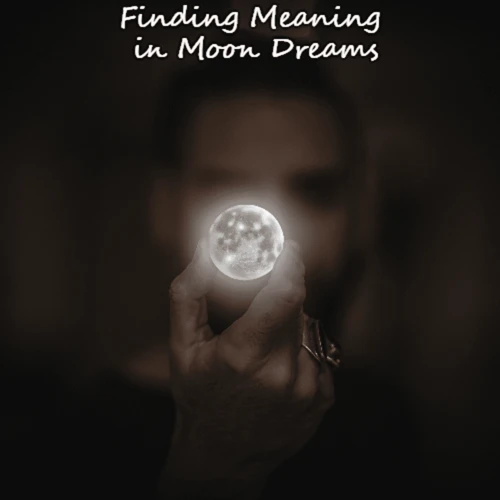
Dreams have a mysterious way of incorporating celestial bodies, and the moon is one of the most potent symbols that frequently appear in our sleeping adventures. The moon holds profound symbolism and represents various aspects of our inner world. Let’s explore some of the key meanings associated with the moon in dreams:
- The Moon as a Symbol of Femininity: The moon has long been associated with femininity and the divine feminine energy. In dreams, it often signifies the nurturing and intuitive aspects of ourselves. It can represent the motherly love, emotional depth, and the receptive qualities inherent in all of us.
- Lunar Phases and Their Significance: The different phases of the moon—such as the full moon, new moon, or crescent moon—carry distinct symbolism in dreams. The full moon often symbolizes clarity, illumination, and heightened intuition. The new moon represents new beginnings, transformation, and the potential for growth. Each phase reflects a unique energy that holds valuable insights for us to explore.
- Moonlight and Its Illuminating Power: Moonlight is a gentle, soft glow that can illuminate even the darkest corners. In dreams, moonlight can symbolize guidance, wisdom, and enlightenment. It represents the light that shines within us, even during challenging times, reminding us to seek inner illumination and trust our inner wisdom.
Dreams involving the moon offer a precious opportunity to tap into our feminine energy, explore our intuitive side, and navigate through the ever-changing cycles of life. By paying attention to the moon symbolism in our dreams, we can gain valuable insights into our emotions, relationships, and spiritual growth.
1. The Moon as a Symbol of Femininity
The moon has long been associated with femininity and is often seen as a powerful symbol representing the feminine qualities within us. In dreams, the moon can represent aspects of our own femininity or the feminine energy in our lives. It embodies qualities such as intuition, nurturing, emotions, and the depths of the unconscious mind.
1. Intuition: The moon is closely linked to intuition, often referred to as the “sixth sense.” In dreams, the moon can symbolize our intuitive abilities and the need to trust our inner wisdom. It encourages us to listen to our instincts and tap into our subconscious knowledge.
2. Nurturing: Like the moon, which has a gravitational pull that affects the tides, the symbol of the moon in dreams is associated with nurturing and emotional support. It reminds us to embrace our nurturing qualities and to care for ourselves and others.
3. Emotions: The moon’s changing phases reflect the ebb and flow of emotions. In dreams, the moon can represent our emotional state or unresolved feelings. It reminds us to pay attention to our emotions and to explore and express them in a healthy way.
4. Unconscious Mind: The moon’s association with the unconscious mind suggests that in dreams, it can symbolize the depths of our psyche. It invites us to explore our shadow self, hidden desires, and unresolved emotions that may have been suppressed or forgotten.
Understanding the moon as a symbol of femininity in dreams allows us to tap into the rich symbolism and wisdom it holds. By embracing the qualities it represents, we can cultivate a deeper connection with our intuition, emotions, and aspects of our own femininity and the feminine energy around us.
2. Lunar Phases and Their Significance
The moon, with its ever-changing phases, holds powerful symbolism in the realm of dreams. Each phase of the lunar cycle carries its own unique energy and meaning, reflecting different aspects of our emotions and experiences.
1. New Moon: The new moon represents beginnings, fresh starts, and the potential for growth. It is a time of new ideas, opportunities, and setting intentions for the future. In dreams, the new moon symbolizes a clean slate, a chance to start over and embark on new endeavors.
2. Waxing Crescent: As the moon begins to grow in size, the waxing crescent represents growth, progress, and manifestation. This phase is associated with taking action and making positive changes. In dreams, the waxing crescent can suggest that new opportunities or ideas are starting to take shape and that it is time to act upon them.
3. First Quarter: The first quarter moon symbolizes challenges, decision-making, and overcoming obstacles. It represents a time of actively pursuing our goals and facing any hurdles that may arise. In dreams, the first quarter moon may indicate that you are navigating a challenging situation or that you need to make an important decision.
4. Waxing Gibbous: As the moon continues to grow, the waxing gibbous phase signifies perseverance and dedication. It is a time of hard work and pushing forward towards our goals. In dreams, the waxing gibbous can represent your determination and commitment to achieving what you desire.
5. Full Moon: The full moon is a symbol of illumination, completion, and heightened emotions. It represents the culmination of our efforts and the realization of our desires. In dreams, the full moon signifies a time of clarity, heightened intuition, and emotional fulfillment.
6. Waning Gibbous: As the moon begins to decrease in size, the waning gibbous phase signifies reflection, releasing, and letting go. It is a time of introspection and shedding what no longer serves us. In dreams, the waning gibbous may suggest that you are in a period of self-reflection and evaluating what needs to be released from your life.
7. Last Quarter: The last quarter moon represents endings, closure, and the need for completion. It is a time to tie up loose ends and resolve any lingering issues. In dreams, the last quarter moon may indicate that you are reaching the end of a cycle or a phase in your life, and it is time to make peace with the past.
8. Waning Crescent: The waning crescent phase symbolizes rest, rejuvenation, and preparation for a new cycle. It is a time for self-care, reflection, and nurturing your inner self. In dreams, the waning crescent may suggest a need to take a step back, recharge, and prepare for what lies ahead.
The lunar phases in dreams can offer valuable insights into the ebb and flow of our emotions, the cycles of our lives, and the process of growth and transformation. Paying attention to the lunar symbolism in dreams can help us navigate our personal journeys with greater understanding and awareness.
3. Moonlight and Its Illuminating Power
The ethereal glow of moonlight has long been associated with mystery and enchantment, and in the realm of dreams, moonlight symbolizes the illuminating power of the unconscious. When moonlight bathes our dreams, it serves as a beacon, revealing hidden emotions, desires, and truths that may be obscured in our waking lives. Moonlight in dreams often represents the guidance and wisdom provided by our unconscious mind. It invites us to explore the depths of our being and embrace the aspects of ourselves that may have been overshadowed or overlooked. Just as the moon reflects the light of the sun, moonlight in dreams reflects the light of our conscious awareness, helping to bring clarity and illumination to the symbols and messages that arise. In the gentle glow of moonlight, we are invited to explore the mysteries of our own psyche, connecting with our intuition and gaining deeper insights into ourselves and our experiences. Embrace the mesmerizing power of moonlight in your dreams and allow it to illuminate the hidden corners of your unconscious mind.
Psychological Interpretations
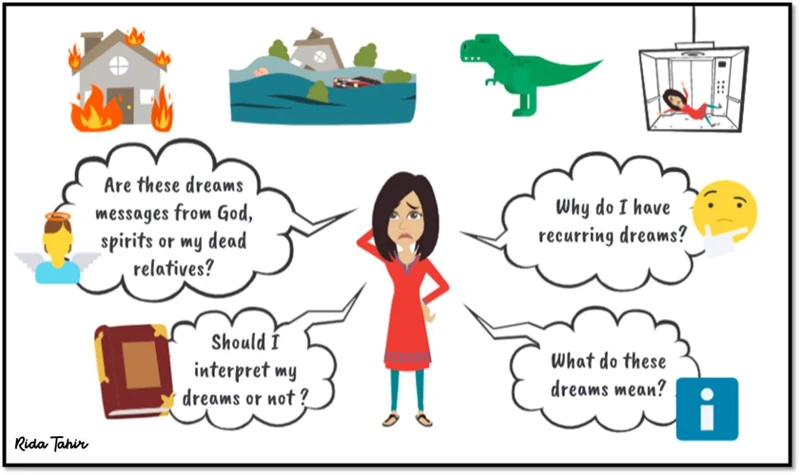
1. Freudian Analysis of Sun and Moon Symbols: Sigmund Freud, the renowned psychoanalyst, viewed dreams as a window into the unconscious mind. He believed that the symbolism in dreams reflected repressed desires and unresolved conflicts. In Freudian interpretation, the sun and moon symbols hold significant meaning. The sun represents the ego, consciousness, and the masculine aspects of an individual. It represents vitality, power, and assertiveness. On the other hand, the moon symbolizes the unconscious, emotions, intuition, and the feminine aspects of one’s personality. It signifies receptivity, vulnerability, and nurturing qualities. Freud emphasized the importance of understanding these symbols in unraveling the deeper meanings hidden within dreams.
2. Jungian Perspective on Sun and Moon Symbols: Carl Jung, another influential psychologist, expanded upon Freud’s theories and introduced his own concept of the collective unconscious. According to Jung, dreams offer insights into the collective wisdom of humanity, representing archetypes and universal symbols. In Jungian interpretation, the sun represents the power of consciousness, enlightenment, and self-realization. It symbolizes the integration of the conscious and unconscious aspects of the psyche. The moon, on the other hand, represents the intuitive, emotional, and spiritual aspects of the self. It signifies the shadow self and the hidden depths of the unconscious mind. Jung believed that understanding the sun and moon symbols in dreams can lead to a greater awareness and individuation.
1. Freudian Analysis of Sun and Moon Symbols
Sigmund Freud, the renowned psychoanalyst, believed that dreams were a window into the unconscious mind, containing hidden desires and repressed thoughts. In Freudian analysis, the sun and moon symbols hold significant meaning within the dream world.
– The Sun: According to Freud, the sun represents the ego, the conscious mind, and the sense of self. It symbolizes vitality, strength, and the masculine energy. When the sun appears in dreams, it may indicate a need for self-expression, success, or a desire for recognition. Conversely, a setting or disappearing sun could suggest feelings of loss, a lack of confidence, or a fear of losing one’s identity.
– The Moon: Freud associated the moon with femininity, the unconscious mind, and the emotional aspect of the psyche. It symbolizes intuition, emotions, and the receptive qualities of the psyche. In dreams, the moon often represents the mother figure or maternal aspects of oneself. It can also reflect a need for nurturing, emotional fulfillment, or a connection to one’s inner self. Additionally, the moon’s phases (such as a full moon, crescent moon, or new moon) may mirror emotional states or cycles within the dreamer’s life.
Freud believed that analyzing these symbols could provide insight into the deeper meaning of dreams and help individuals gain a better understanding of their desires and conflicts on both conscious and unconscious levels.
2. Jungian Perspective on Sun and Moon Symbols
The renowned psychologist Carl Jung offered a unique perspective on the symbolism of the sun and moon in dreams. According to Jungian psychology, the sun represents the conscious mind and the ego, while the moon symbolizes the unconscious mind and the self. The sun represents our rational, logical, and active aspects, while the moon embodies the intuitive, emotional, and passive elements of our psyche. Dreams featuring the sun often signify a desire for clarity, illumination, and self-awareness. They may indicate a need for personal growth, assertiveness, or the integration of masculine qualities. On the other hand, dreams involving the moon can point to the exploration of the shadow self, the acceptance of suppressed emotions and instincts, and the embracing of our feminine qualities. The moon’s waxing and waning phases in dreams can symbolize the ebb and flow of emotions, as well as the cyclical nature of life and personal transformation. From a Jungian perspective, the powerful symbolism of the sun and moon in dreams reveals the intricate dance between our conscious and unconscious minds, urging us to embrace the wholeness of our being.
Sun and Moon Alignment in Dreams
The alignment of the sun and moon in dreams holds profound symbolic meaning. When the sun and moon are in perfect harmony and alignment, it signifies a balance between the masculine and feminine energies within us. The sun represents the active and conscious aspects of our being, while the moon represents the intuitive and emotional aspects. When these two forces align, it suggests a harmonious integration of both our conscious and unconscious mind.
This alignment in dreams can also reflect the integration of opposites within ourselves. The sun symbolizes light, vitality, and energy, while the moon represents darkness, mystery, and introspection. When they align in a dream, it signifies the merging of these seemingly contradictory aspects, resulting in a greater sense of wholeness and self-awareness.
The alignment of the sun and moon can also represent the balance between our rational and emotional selves. The sun represents logical thinking and rationality, while the moon embodies emotions, intuition, and the unconscious. In dreams, when the sun and moon align, it indicates a harmonious integration of these two forces, leading to a more balanced and holistic approach to life.
The alignment of the sun and moon in dreams symbolizes the integration of different aspects of ourselves, the balance of masculine and feminine energies, and the merging of conscious and unconscious aspects of our mind. By paying attention to this alignment in our dreams, we can gain deeper insights into our inner harmony and achieve a greater sense of self-awareness.
1. The Balance of Masculine and Feminine Energies
The balance of masculine and feminine energies is a fundamental concept in understanding the symbolism of the sun and moon in dreams. The sun is often associated with masculine energy, representing qualities such as assertiveness, strength, and vitality. It symbolizes the conscious mind, rationality, and the active aspect of our psyche. On the other hand, the moon represents feminine energy, embodying qualities such as intuition, receptivity, and emotions. It symbolizes the unconscious mind, intuition, and the passive aspect of our psyche.
In dreams, the presence of both the sun and moon can signify the need for balance between these two opposing forces. It may indicate a desire for harmony between our conscious and unconscious selves, as well as a need to integrate both rationality and intuition in our waking lives. Striking a balance between these energies can lead to a more complete understanding of ourselves and a greater sense of wholeness.
When the sun and moon align harmoniously in a dream, it may suggest a state of equilibrium and self-awareness. This alignment represents the successful integration of both masculine and feminine energies within us. It signifies the union of our conscious and unconscious minds, allowing us to tap into our full potential and embrace the various aspects of our being.
By exploring the symbolism of the sun and moon in dreams, we can gain valuable insights into the delicate dance between masculine and feminine energies within ourselves. Embracing this balance can lead to a deeper understanding of who we are and help us navigate our journey towards self-discovery and personal growth.
2. Integration of Conscious and Unconscious Mind
The integration of the conscious and unconscious mind is a fundamental aspect of dream symbolism, and it holds significant implications for our overall psychological well-being. Dreams often act as a bridge between these two realms, providing an opportunity for them to communicate and merge. When we pay attention to our dreams and delve into their symbolism, we facilitate the integration of these two aspects of our psyche.
The conscious mind represents our everyday awareness, including our thoughts, perceptions, and rational thinking. It is responsible for decision-making and problem-solving. On the other hand, the unconscious mind holds our deepest emotions, desires, instincts, and memories. It operates without our conscious awareness and greatly influences our thoughts and behaviors.
Dreams offer a unique opportunity for the conscious and unconscious mind to collaborate. By exploring the symbolism within our dreams, we can tap into the wisdom of our unconscious and bring it to the forefront of our conscious awareness. This integration allows for a more holistic understanding of ourselves and our experiences, leading to personal growth and self-discovery.
In the process of integrating the conscious and unconscious mind, we become more aligned with our authentic selves. We gain deeper insights into our motivations, fears, and desires, enabling us to make more informed choices in our waking lives. This integration also helps us to resolve inner conflicts and to heal emotional wounds that may be holding us back.
Conclusion
The power of sun and moon symbolism in dreams is truly illuminating, revealing the profound connection between our conscious and unconscious minds. Through the exploration of dreams, we come to understand that they are not random, but rather a rich tapestry of symbolic language that holds deep meaning and significance. The sun, with its radiant energy, represents our vital life force and the conscious mind, while the moon, with its mysterious luminescence, embodies the realm of the unconscious and the feminine energy within us. By delving into the symbolism of the sun and moon in dreams, we gain valuable insights into our own inner worlds and the delicate balance between light and darkness within us. As we strive to integrate the conscious and unconscious aspects of ourselves, we embark on a journey of self-discovery and personal growth. So, let us embrace the power of dreams, for they hold the key to unlocking the secrets of our souls.
Frequently Asked Questions
1. Why do we dream?
Dreams serve various purposes, including processing emotions, consolidating memories, problem-solving, and creative inspiration. They offer a platform for our unconscious mind to communicate and help us navigate through our waking lives.
2. Can dreams predict the future?
While dreams can be filled with symbolism and provide insights into our subconscious, there is no scientific evidence to support the idea that dreams can predict the future. Dream interpretations should be viewed as reflections of our current state of mind rather than literal predictions.
3. Why do we sometimes forget our dreams?
Forgetting dreams is a common occurrence due to the nature of our memory consolidation during sleep. As we wake up, our brain transitions from a dream state to wakefulness, causing the dream memories to fade quickly. Distractions, lack of focus, or not giving importance to dreams can also contribute to forgetting them.
4. Are all dreams meaningful?
All dreams have the potential to hold meaning, but not all dreams are equally significant. Some dreams may simply reflect our daily experiences or random thoughts, while others may carry profound symbolism and offer valuable insights. Paying attention to recurring themes or intense emotions within dreams can help decipher their meaning.
5. Can nightmares have positive interpretations?
Yes, nightmares, despite their distressing nature, can have positive interpretations. Nightmares often reflect unresolved fears or deep anxieties, and by addressing and understanding these fears, we can empower ourselves to overcome challenges and grow emotionally.
6. Do animals dream?
Research suggests that animals, particularly mammals, do indeed experience dream-like states. Studies have shown similar brain activity patterns during REM sleep, the stage associated with intense dreaming, in various animal species. This suggests that animals may also generate mental images and experiences during sleep.
7. Can lucid dreaming be controlled?
Lucid dreaming is a state in which the dreamer becomes aware that they are dreaming and can exert some control over the dream. While it can be difficult to intentionally induce lucid dreams, certain techniques, such as reality checks, dream journaling, and meditation, can increase the likelihood of experiencing lucidity during dreams.
8. Are recurring dreams significant?
Recurring dreams often hold significance as they point to unresolved issues, ongoing conflicts, or recurring emotions in our lives. They provide an opportunity to address and work through these underlying issues and can serve as a catalyst for personal growth and self-reflection.
9. Can trauma influence dream content?
Yes, traumatic experiences can have a profound impact on dream content. Trauma-related nightmares may replay distressing events or incorporate symbols and themes related to the trauma. Processing and seeking support for traumatic experiences can help alleviate the frequency and intensity of these nightmares.
10. Can dream symbols have universal meanings?
While many dream symbols can have personal associations, there are also collective or universal symbols that hold similar meanings across cultures. For example, water often represents emotions, while flying can symbolize freedom or liberation. However, personal experiences and cultural contexts can influence the interpretation of dream symbols, so it’s important to consider individual meaning alongside any universal symbolism.

